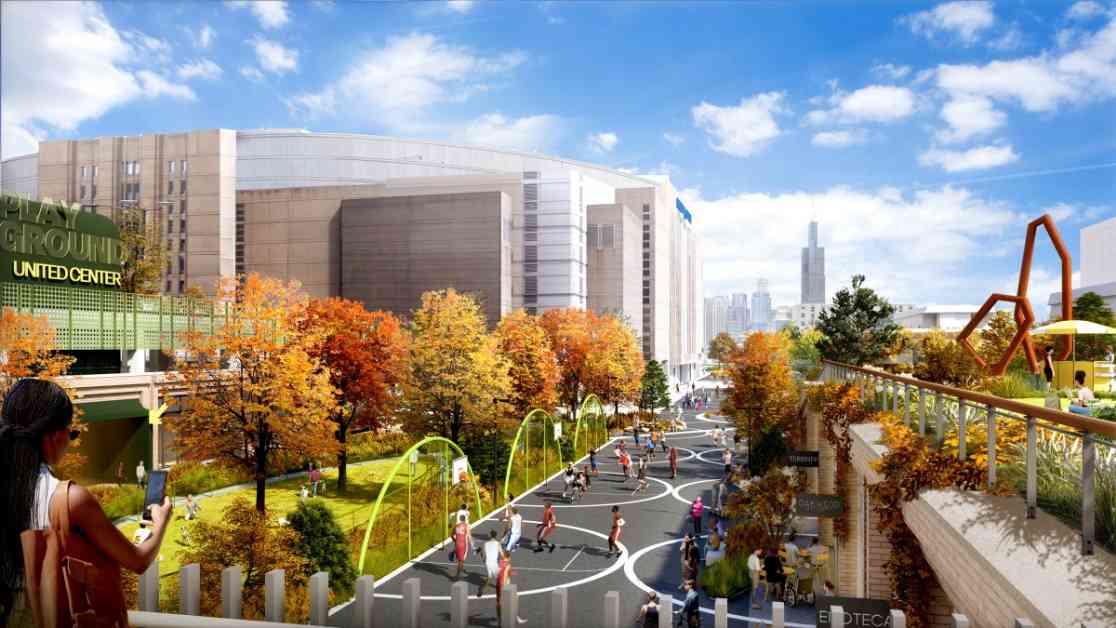Proposed Transformation Plan for United Center Area Unveiled
New renderings have been released showcasing a breathtaking $7 billion development project set to transform the area surrounding the iconic United Center in the heart of Chicago. The 1901 Project, initially introduced last summer, aims to revamp the 55-acre parking lot area surrounding the United Center, home to the Chicago Blackhawks and Chicago Bulls, into a vibrant mixed-use community.
Ambitious Development Plan
The proposed plan, which was recently presented to the Chicago Plan Commissioners by developers from Los Angeles-based RIOS and United Center officials, received unanimous approval to proceed to the Zoning Committee for further evaluation. The unveiling of new renderings this week provided a glimpse of the project’s vision, including a new music venue and a range of other amenities around the 30-year-old arena.
Transformative Vision
The 10-year project envisions the creation of a dynamic neighborhood on the Near West Side, featuring over 9,000 residential units, with 20% designated as affordable housing options, 1,300 hotel rooms, commercial spaces, and 25 acres of green space. Construction is slated to begin this summer, with Phase 1 aiming for completion by 2028. This initial phase will involve the construction of parking structures, a 6,000-seat music hall, a hotel, and retail spaces, setting the stage for the project’s full realization.
Community Perspectives
Alderman Walter Burnett, Chair of the Chicago Plan Commission and representative of the 27th Ward where the project is located, expressed his enthusiasm for the development, emphasizing the positive impact it will have on the community. “The West Side is evolving, and it’s changing and it’s our time,” Burnett stated, highlighting the long-awaited transformation of the area from parking lots to vibrant homes and businesses.
United Center CEO Terry Savarise echoed this sentiment, emphasizing that the 1901 Project is more than just an entertainment district but a thriving neighborhood offering resources, energy, vibrancy, and opportunity to residents and visitors alike.
Despite the overall support for the project, concerns were raised by members of Unite Here Local 1, a union representing hotel workers, regarding the prioritization of affordable housing in Phase One. The project has also outlined traffic study recommendations and plans for public improvements, including a potential request for public funds for enhancements such as a new CTA train stop.
As the project moves forward to the Zoning Committee and awaits necessary permits, officials are hopeful to commence construction later this year, marking a significant milestone in the transformation of the United Center area.












